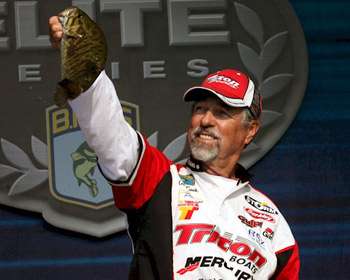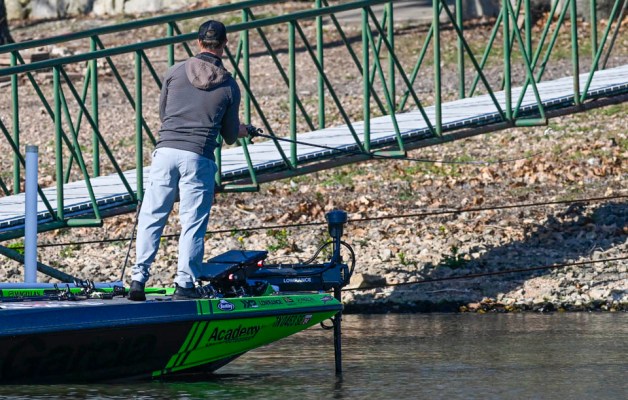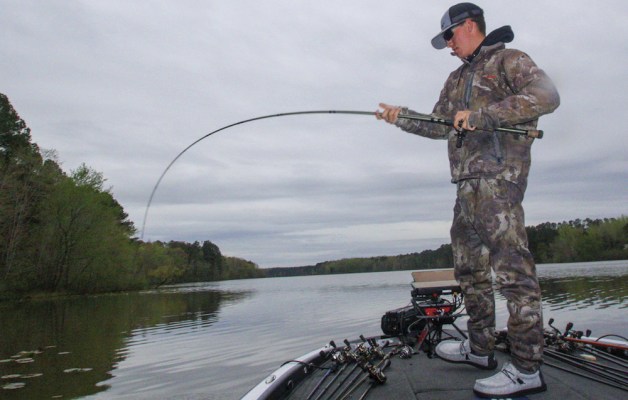
Over the past three decades, veteran Oklahoma pro Ken Cook has been a consistent competitor on the professional bass fishing scene. In a sport where longevity at the top level is rare, Cook has found a way to remain competitive long after claiming his first professional Bassmaster victory on Florida's Lake Toho in 1982. Cook's experiences and observations regarding tackle trends can provide valuable information for any angler.
"Bass fishing is evolving continuously," explains Cook. "When I started out, it was all about throwing spinnerbaits, plastic worms, and shallow running crankbaits because that's all we had. It has come to the point now where we are fishing a lot differently." Cook acknowledges that many of the newer baits and techniques that have emerged within the past five years would have worked decades ago — they just weren't available to the anglers.
"There's still plenty of bass but with the tougher conditions that we are forced to fish under, we are fishing more finesse techniques in a lot of cases," he says. The drop shot rig is a perfect example of evolving with tackle trends over time. At the turn of the new millennium, few anglers were aware of the rig's effectiveness or how to fish it. "It has been kind of a pleasure to try and stay in front of new techniques like the drop shot. You have to push the envelope — if you don't, you'll get trampled in this sport," says Cook.
"The drop shot came around five or six years ago and now it's evolving as we go." He points to wacky style drop shotting for suspended fish as an example of the rig's evolution.
Even when the bass are biting, Cook looks to discover new techniques that may be more effective given the current conditions. "For me, it has always been about trying to figure out how to catch more bass. If I catch a bass on one technique, I want to try something else to see if I can find something better," states Cook. "It has always been a driving force in my life to try and figure out techniques to catch bass. As things have changed, it has been necessary for me to change as well." Cook believes that the lures and techniques are not the only things that have evolved over time.
The playing field has actually gone through a transformation. "The lakes have changed, the waters have changed, and the fish have gotten smarter. We are just fishing a lot different water these days then what we fished in the past," states Cook. "Back then, we had a lot of lakes with standing timber and trees; now we're fishing more vegetation and clear water. The bass have also changed. We're now fishing deeper to deal with the increased fishing pressure."
While keeping up with current trends is critical to Cook's success, he admits that there are times and places to revisit proven techniques. During the last tournament of the 2008 Elite Series season, Cook scored by burning a spinnerbait over grass on Oneida Lake — the exact same technique he used to win a tournament on Lake Ontario in 1987. "It's one of those things that works under certain sets of conditions and you keep those in the back of your head for when the conditions are right."
For anglers who continue to buck current trends, Cook offers this insight, "I like learning new techniques because it keeps me fresh and keeps my mind going. If you only catch fish on one particular technique, and you remain married to that one technique, it's not going to last. It's about solving the puzzle and the puzzle changes. You can't stand still, or you will get run over."
(Provided by Z3 Media)




